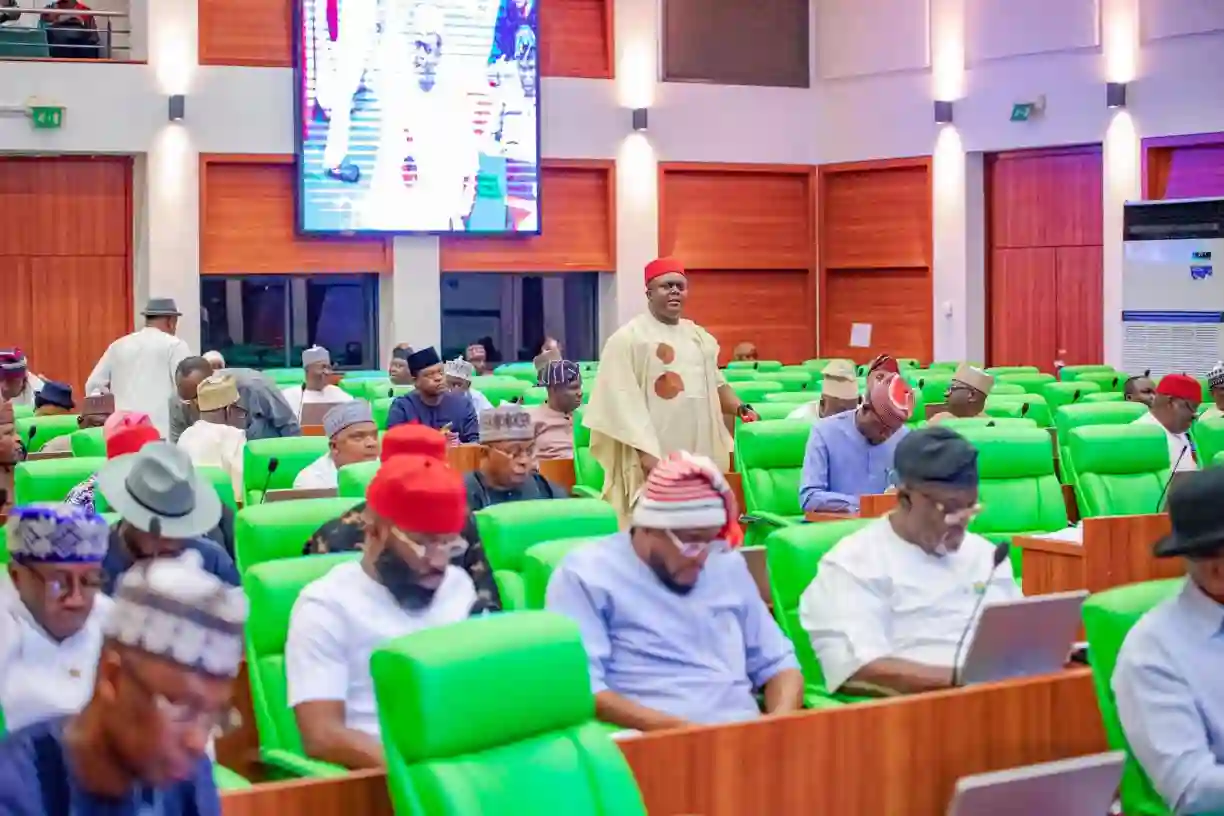The House of Representatives on Monday held a public hearing on a bill proposing the establishment of the South East Institute for Vocational and Entrepreneurial Studies in Umuobom, Ideato Federal Constituency, Imo State. The bill, sponsored by Hon. Ikenga Imo Ugochinyere, who represents Ideato North and South Federal Constituency, aims to create a federal institute dedicated to promoting innovation, entrepreneurship, and practical vocational training tailored to modern industry and technology.
The session, organized by the House Committee on Alternative Education, served as an opportunity for stakeholders to present their views and make recommendations on the proposed law. Following the review and adoption of these contributions, the committee is expected to submit its report to the House for consideration before the bill proceeds to its third reading.
Hon. Ugochinyere described the bill as a major step toward redefining Nigeria’s education and employment system. He said it represents “a vision for a new Nigeria, one that prioritises skills, innovation, and creativity over paper qualifications.” He added that the proposed institute stands for justice and equity, noting that the Southeast region, despite its strong economic contributions, remains underrepresented in federal educational initiatives.
According to him, establishing the institute in Imo State would signal the Federal Government’s commitment to balanced and inclusive national development. He called on lawmakers and stakeholders to support the initiative, emphasizing that it is a strategic move to close the educational and economic gaps affecting the region.
“This bill is about building the Nigeria of our dreams, a nation where certificates no longer define success, but where skills, innovation, and creativity power our shared prosperity,” Ugochinyere said. “It’s more than a legislative proposal; it’s a vision of hope, of a Southeast, and indeed a Nigeria, where young people are defined not by unemployment or insecurity, but by enterprise, productivity, and innovation.”
He explained that the South East Institute for Vocational and Entrepreneurial Studies would serve as “a factory of ideas, a hub of creativity, and a launchpad for future innovators, entrepreneurs, and skilled professionals.” The lawmaker noted that unemployment continues to pose one of the greatest threats to Nigeria’s stability and development, adding that many young people are pushed into crime or social unrest due to lack of opportunities.
“When a young man or woman acquires a skill or starts a business, it transforms not only that person’s life but also their family, community, and the entire nation,” he said.
Highlighting the Southeast’s long-standing reputation for entrepreneurship, Ugochinyere praised the traditional Igbo apprenticeship system, which has been recognized internationally by institutions like Harvard University as one of the most successful grassroots entrepreneurship models in history. He said the institute would merge that indigenous system with modern technology, research, and global collaboration to enhance innovation and productivity.
“With the right training and innovation, we won’t just be creating jobs, we’ll be building industries. We won’t just be generating income, we’ll be laying the foundation for sustainable prosperity,” he stated.
He stressed that although the institute will be located in the Southeast, it is a national project designed to tackle a national problem. “Youth unemployment is not an Igbo, Hausa, or Yoruba problem, it is a Nigerian problem. This bill provides a Nigerian solution: empower the youth and secure the nation,” he said.
Ugochinyere pointed to examples from countries such as Germany, Japan, China, and the United States, where technical and vocational education has played a vital role in industrial growth and economic development. “Universities alone cannot sustain industrial growth,” he said. “Entrepreneurship, innovation, and technical expertise are the backbone of every prosperous nation. Through this bill, Nigeria can join the ranks of countries that have harnessed skills to power peace, growth, and national progress.”
The lawmaker called for bipartisan support for the bill, describing it as a collective investment in the country’s future. “In passing this bill, we’re not just creating another federal school, we’re building a future where every Nigerian youth can rise, where skills take precedence over paper qualifications, and where innovation fuels national prosperity.”

